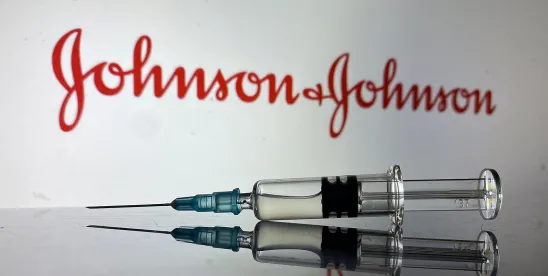Johnson & Johnson may have gotten away with one here.
So I generally do not discuss fax TCPA cases these days because I refuse to acknowledge that fax is still a thing.
But every once in a while a fax case comes along that has broader application and a new one out of New Jersey seems to fit the bill–especially as the last few weeks have demonstrated a trend around narrowing the definition of “marketing” under the TCPA.
In SASB Corp. v Johnson & Johnson, 2024 WL 3949343 (D. N.J. Aug. 27, 2024) the pharmaceutical giant escaped a TCPA class action around faxes related to Xarelto.
The faxes promoted something called CarePath, who offered services for specific Johnson & Johnson products and provided pharmacists information to pass along to patients about the program. In particular the message advised the Plaintiff–who has a pharmacy–that CarePath offers discounts on Xarelto.
The Defendant moved to dismiss the case arguing the fax was not an advertisement because Defendants argue that the TCPA does not apply to Plaintiff’s situation because the Fax “does not promote or discuss the sale of Xarelto but rather points patients who have already been prescribed Xarelto to free resources to get information about the drug.”
That’s true as far as it goes, but to my eye the fax is advertising CarePath and not Xarelto.
Nonetheless the Plaintiff apparently took the bait and argued the fax was sent to advertise Xarelto. The Court disagreed:
“[T]he Court finds that, on its face, the Fax is not an advertisement and thus that it falls outside the scope of the TCPA. Plaintiff concedes that the Fax “recites the required disclosures for Xarelto,” which on the entire second page of the Fax include answers to pertinent medical questions about the medication that a patient might want to know, including what Xarelto is used for, what discussions should be had with the patient’s doctor about Xarelto, what are Xarelto’s most serious risks and important warnings, who should not take Xarelto, what are Xarelto’s side effects, and other important facts for patients to know about Xarelto—all which convey drug safety information that does not have anything to do with the sale or cost of Xarelto. (Opp’n Br. at 7; Fax at 2.) The second page of the fax thus unquestionably contains purely informational messaging.”
Pause.
It feels to me that discussing the risks and indications of Xarelto is akin to discussing its commercial availability–i.e. trying to sell it. If I send you a fax about the limitations of my law practice– Troutman Amin, LLP only defends high-stakes TCPA class actions and privacy litigation and provides related counseling and compliance services nationwide– that still feels like an advertisement. But perhaps not.
The Court goes on:
The overall thrust of the message portrayed by the Fax, including on its first page, is not to promote the availability or quality of Xarelto; rather, it is directed at patients who have already been prescribed Xarelto or at least have received a recommendation from their doctor to take Xarelto, and it seeks to provide them with resources to help them navigate that prescription or recommendation. (Fax at 1.) Neither page of the Fax discusses the quality of Xarelto as a drug at all, for example by comparing its quality to that of similar medications. (See Fax.) The Fax also does not discuss the commercial availability of Xarelto. (See id.)… In sum, the Court concludes that the purpose of the Fax is not “to influence a potential buyer’s decision in making a purchase,” but to inform a patient about relevant medical and insurance information.
Hmmm.
Now look, I am not going to hate on a court for releasing a defendant from a terrible fax TCPA lawsuit but I’m not sure this decision is in line with the majority view.
Regardless, this is a great data point for folks looking for the line between informational and marketing messages. Generally, communications sent to inform consumers of free services or cost-saving benefits on products they are already purchasing might not be marketing. The obvious counter is that the availability of such services plainly leads to more purchasing of the product–which seemingly makes it marketing–but this court disagrees.
I know this may feel like angels dancing on the head of a pin– and….yeah–but again, view this as a data point more than as a final answer on the subject.




 />i
/>i
